What Was Elvis Presley’s Personality Type? An MBTI® Practitioner’s Perspective
As an MBTI® practitioner and personality analyst, I’m often asked about famous people and what makes them tick. One person who frequently comes up in conversation is Elvis Presley. He was a magnetic individual with massive appeal. Until recently I didn’t know much about Elvis Presley. But over time, I started to pick up bits of information from various articles and mentions on television. Last week I got the chance to watch Baz Luhrmann’s movie, Elvis. This sparked my curiosity about the larger-than-life “King.” Of course, Luhrmann’s movie isn’t 100% truth. Modifications were made to create a linear, enticing storyline.
But what was it about Elvis that made him so popular? What parts of his personality have been obvious from childhood till his untimely death in 1977?
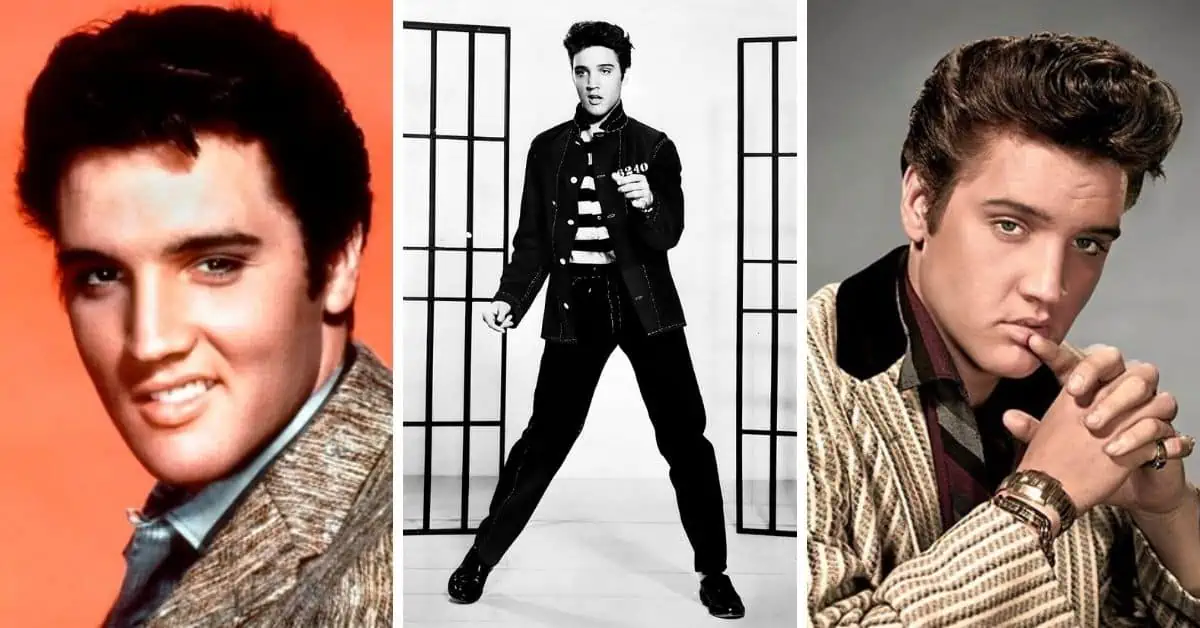
Let’s take a look at his personality from a typology perspective.
A look at Elvis Presley’s life and achievements
Elvis Presley was an individualistic performer who went on to make history and become an iconic figure in music. He helped pioneer the rock ‘n’ roll sound and still reigns as one of the most influential performers of all time.
Not only did Elvis Presley’s albums sell in the millions, but he also enjoyed success on screen, starring in such films as ‘Love Me Tender’ and ‘Jailhouse Rock’. His philanthropy is also an inspiration—in 1961, he started a tradition of giving funds to more than 50 charitable organizations, donating more than $100,000 a year.
What was Elvis like as a child?
Whenever I look at someone’s personality type, I always try to start at the beginning. Childhood is a time where many of an individual’s most influential personality characteristics come to light. Feeling types are more obviously ardent and passionate in childhood. Thinking types are humorously blunt. Sensors are interacting with their environment while intuitives give into their imagination and vision.
Of course, all children do all of these things – but certain qualities stand out as “favorites.” Children will keep coming back to the preferences that are natural for them again and again.
A quick look at Elvis Presley’s childhood:
Elvis Presley was born in Tupelo, Mississippi, on January 8, 1935. Raised in poverty, his family struggled to pay the bills and had to move frequently because they were often evicted. Elvis’s mother, Gladys, did cotton picking to make ends meet, laying Elvis down on a sack and dragging him along the rows beside her when he was a baby. As a toddler, Elvis helped her pick the bolls off the stems of cotton. He learned early on that he’d have to step up and be part of the family’s financial support if they were going to make ends meet.
“Don’t you worry none, Baby,” Elvis reportedly told his mother, Gladys, at one point. “When I grow up, I’m going to buy you a fine house and pay everything you owe at the grocery store and get two Cadillacs–one for you and Daddy, and one for me.'”
Elvis Presley’s birth was marked by tragedy. His older twin brother, Jessie Garon Presley, was stillborn and his death deeply wounded Elvis’s mother. As a result, she and Elvis’s father, Vernon, decided to never have any more children — Elvis would be their only son. In turn, Gladys became extremely overprotective of Elvis, threatening to physically punish him if he ever escaped from her sight. It’s even said that his mother slept in the same bed as him until his teenage years, coming up with a “baby language” that they could speak together.
The result is that young Elvis was often shy, awkward, and nervous around other people. In fact, he was so shy that he would sometimes stutter in social settings. A childhood friend, Mary Magdalene Morgan, once said of Elvis, “He always seemed nervous. He could never completely sit still, he stuttered but not to the point you couldn’t understand him.”
“Whenever I get excited, I stutter a little bit. I have a hard time saying ‘when’ or ‘where’ or any words that start with ‘w’ or ‘i.’” – Elvis Presley
The School Days of Elvis Presley
All accounts seem to state that Elvis was shy, introverted, and musically driven as a child. He performed mediocre to poorly in school, and was deemed “sweet and average” by his teachers. A dreamer at heart, he didn’t show much interest in lessons, and was often found daydreaming or getting distracted. If you were to look at his childhood, you wouldn’t necessarily have seen signs of the later success he would become.
“I wasn’t popular in school. I failed music . . . only thing I ever failed.” – Elvis Presley
At eleven years old, Elvis got his first guitar as a gift from his mother. He was an eager learner, picking up chords quickly and trying to replicate the beloved songs he heard in church or in his neighborhood. By the seventh grade, Elvis was carrying his guitar with him to school every day. Other students would later recall him playing his guitar during lunchtime or recess, but rarely for any formal appearances. His taste for “hillbilly” or Black music was frequently scorned by teachers and classmates. In fact, bullying was a regular occurrence in young Elvis’s life. Future label mate Barbara Pittman once remembered that her older brother and his friends “used to hide behind buildings and throw things at [Elvis]—rotten fruit and stuff—because he was different, because he was quiet and he stuttered, and he was a mama’s boy.”
Other classmates stole his beloved guitar and cut the strings early in eight grade to taunt Elvis.
Shyness was often a struggle for young Elvis. When he was 12 years old, a local radio station gave him the chance to sing on one of their shows. He quickly turned down the opportunity because he was too nervous. It seemed that only in church on Sundays did he have the confidence to join in and sing loudly with the congregation.
“I’m so nervous. I’ve always been nervous, ever since I was a kid.” – Elvis Presley
Elvis Presley found a sense of comfort in the Black community, as he had spent his childhood in mostly Black neighborhoods. The community seemed to accept him, but with a little head-scratching at times as well. Black people who knew Elvis when he was a kid said “that he was a weird little white kid.” Music writer and filmmaker Nelson George said “Elvis was an outlier”.
Breaking Out
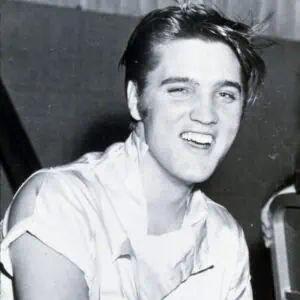
As Elvis reached his teen years, his confidence began to grow. He started wearing flashy clothes and slicking his hair back with Vaseline and black shoe polish. No one was quite sure what to think of him, but he didn’t seem to care.
“I guess I always knew if you want to stand out in a crowd you gotta be different”
Many in school mocked Elvis for his fashion taste, calling him a freak. But his days of hiding in the background were soon to be in the rear view mirror. He enjoyed frequenting Beale Street Blues clubs and taking part in the group sings at the Rev. H.W. Brewster’s Black Memphis Church. His musical inspirations here became the foundations of his style in the future.
Reaching Stardom
In 1954, life for Elvis Presley drastically changed. Sun recording studio boss Sam Phillips was looking for a new sound; someone who could change things up in the musical world. When Elvis Presley entered the studio on Saturday, June 26, 1954, Sam Phillips was immediately curious. Here was a 19-year-old boy with long sideburns, acne on his neck, and greasy black hair swept back in a ducktail. But what Phillips noted most was Elvis’s humility and introversion.
“Now you’ve got to keep in mind Elvis Presley probably innately was the most introverted person that came into that studio.” – Sam Phillips, Rolling Stone
Presley failed to impress during the first few hours of his recording session with Phillips. He would sing a variety of songs, strumming rudimentary chords on his beat-up guitar. Nothing seemed to be hitting the right spot. After hours of recording, Phillips and his assistants had nearly written Elvis off. They decided to take a break to recoup, and that’s when something unexpected happened. Shy, introverted Elvis got the idea to put himself out there and sing something different than what he’d been trying all day. He started jumping around, “acting the fool” by all accounts, and belted out “That’s Alright, Mama” with no idea that anyone would take him seriously.
“This song popped into my mind that I had heard years ago, and I started kidding around with [it]’.” – Elvis Presley
This song, an old Blues number by Arthur ‘Big Boy’ Crudup, changed everything. Phillips and his team recorded and edited as if in a “fever dream.” This song went on to define Elvis as an artist and skyrocket his career.
Fame Isn’t Always Easy
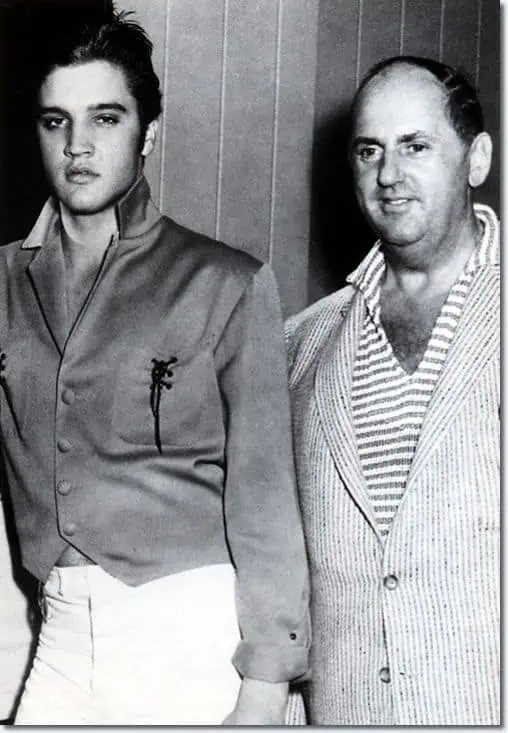
Unlike other artists from the time who openly expressed their rebelliousness and prestige, Elvis Presley was never one to brag or boast about his success. He said in a 1960 interview, “Don’t call me the King, I’m not the king. A lot of people seem to think I started this business, but rock ‘n’ roll was here a long time before I came along.”
It was important to Elvis to never feel like he was pretending or getting swept up in the hype of himself. On stage he could wiggle and shake in the spirit of the music he loved, but offstage he was notably humble and quiet.
“…the image is one thing and the human being is another…it’s very hard to live up to an image.” –
“I’m trying to keep a level head. You have to be careful out in the world. It’s so easy to get turned.”
“If you let your head get too big, it’ll break your neck.”
“I’d just like to be treated like a regular customer.”
“Just because I managed to do a little something, I don’t want anyone back home to think I got the big head.” – Elvis Presley
Repeatedly, Elvis was reluctant to live up to his newfound fame and the celebrity that surrounded him. Never wanting to be too big for his boots, Elvis wanted to remain authentic and true to himself throughout his career.
Tragically, some people saw Elvis as a means to make profits and took advantage of his popularity with deplorable outcomes. From his manager Colonel Tom Parker to the many people he surrounded himself with, Elvis fell victim to those that took advantage of him. Sycophants clung to Elvis and dragged him into a lifestyle that ultimately led to his decline.
Eventually it was revealed that Presley’s manager, Colonel Tom Parker, was pocketing about 80% of Presley’s income. Parker also hired corrupt doctors to keep Elvis either pepped up or sedated, in order to keep him performing at a very rigorous schedule of two shows a night, seven days a week in Las Vegas. Parker, a gambling addict, kept Presley in Las Vegas in order to continue his addiction without any boundaries.
“The Colonel made sure he got his own needs taken care of, but Elvis was locked into this kind of indentured servitude,” journalist Alanna Nash explained. Nash spent many years probing into the life and legend of Parker, much of which she says has been obscured on purpose.
Elvis’ untimely death in 1977 was a result of many years of taking prescription drugs to cope with the pressures and expectations that came with his fame. His untimely death is a reminder of the dark side of fame, and how it can be mishandled.
Elvis and the Black Community
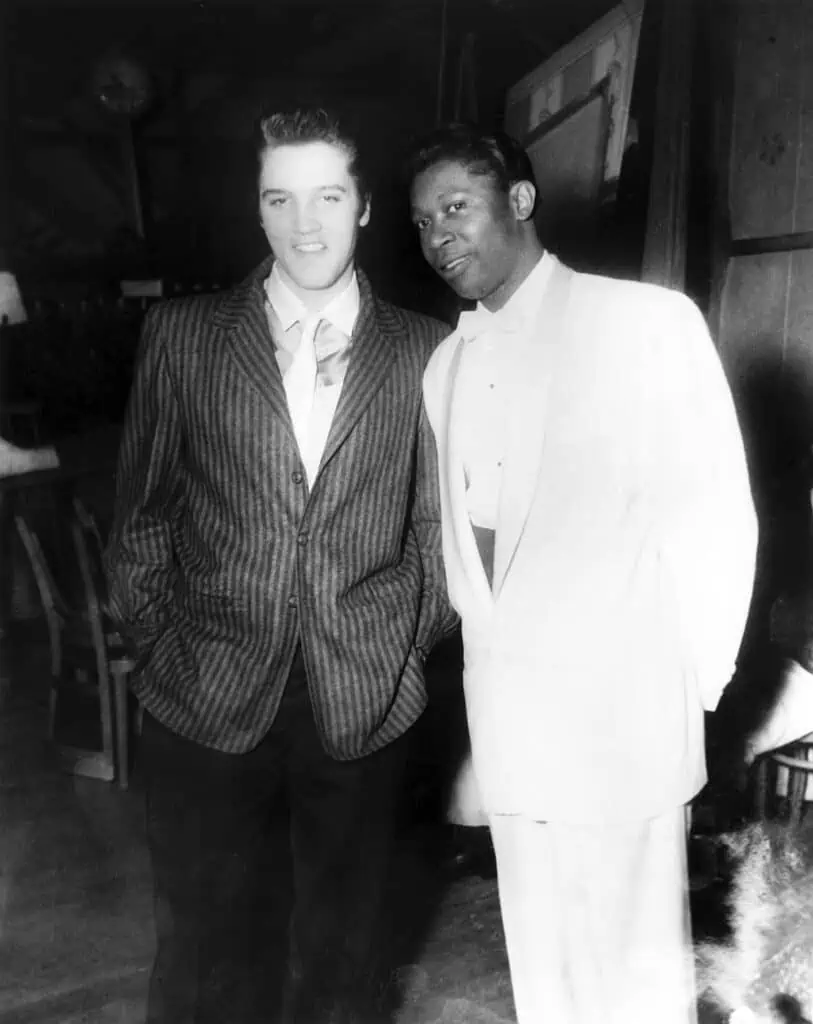
There have been mixed messages about Presley’s involvement in the Black community. On one hand, Elvis helped to draw attention to Black blues, rhythm-and-blues and gospel music. In Presley’s early years, Black music was routinely denied any mainstream radio and television airtime. People called Black music “immoral” or “barbaric.” Presley’s choice of using Black music, and crediting Black songwriters, was a bold statement at a time when racism was still rampant.
On the other hand, Presley profited far more from music written by Black songwriters than the original songwriters did. Black artists at that time were often denied their rightful recognition, and rarely received the same level of respect or financial compensation that Elvis was given.
Elvis Presley himself showed respect towards the Black community, as he felt a kinship with them due to his childhood growing up in Black neighborhoods. James Brown, the “Godfather of Soul”, famously said: “I wasn’t just a fan, I was his brother.” Brown – born in poverty in Barnwell, South Carolina, on the other side of the segregated south’s racial divide from Presley, who was born dirt-poor in Tupelo, Mississippi – was reportedly the one and only entertainer allowed to have private time with Elvis’s body after his death. “Elvis and I are the only true American originals,” Brown insisted. “There’ll never be another like that soul brother.”
“I thank God for Elvis Presley. I thank the Lord for sending Elvis to open that door so I could walk down the road, you understand?” – Little Richard
One of Presley’s most famous friendships was with Blues legend B.B. King. King said. “I’d play Lucille (his guitar) and sing with Elvis, or we’d take turns. It was his way of relaxing’…’We were the original Blues Brothers because that man knew more blues songs than most in the business – and after some nights it felt like we sang everyone one of them.”
Presley also credited the Black community and Black songwriters for his success. He famously said: “Nobody can sing that kind of music like colored people. Let’s face it: I can’t sing it like Fats Domino can. I know that. But I always liked that kind of music. I used to go to the colored churches when I was a kid – like Rev. Brewster’s Church”
It was important to Elvis Presley to credit his Black sources. Still, sadly, he was able to far out-earn most of the Black artists who had so greatly influenced him and it’s important to recognize their influence and their contributions to his success.
Analyzing Elvis Presley’s Personality Type
In order to analyze Presley’s personality type, it’s crucial for me to dig into the ways he and others who knew him described his preferences and tendencies. I watched a lot of video interviews of Elvis to try to ascertain his typical way of speaking and relating to others. I try not to type Elvis based on his performances too much, considering performers have to operate from their persona more than their real personality. Many charismatic, showstopping performers are actually quite quiet and soft-spoken in their daily lives. Elvis seems to be one of them.
Introverted Feeling (Fi)
What I see right away with Elvis Presley is a preference for Introverted Feeling (Fi). Now if you don’t know what that is, don’t worry, I’m going to explain right now.
Introverted Feeling is a mental process that focuses on being true to one’s self and one’s values. Checking in with the self, being sure that what you’re doing feels authentic, these are the things that matter to people with this preference. Types with Introverted Feeling are often reserved and driven by a certain conviction that comes from within. They think with the heart more than the head, and consider their values more than the bottom line. Individualism is common among Introverted Feeling types. They often stand out for their individual choices and do what feels right rather than trying to fit in.
We can see Introverted Feeling tendencies in some of the following Elvis Presley quotes:
“Values are like fingerprints. Nobody’s are the same, but you leave ’em all over everything you do.”
“It’s not how much you have that makes people look up to you, it’s who you are.”
“I’m trying to keep a level head. You have to be careful out in the world. It’s so easy to get turned.”
“I’m not trying to be sexy. It’s just my way of expressing myself when I move around.”
“You know, those people in New York are not gonna change me none. I’m gonna show you what the real Elvis is like tonight.”
“I just do whatever I feel on stage. Just always did that.” – Elvis
Introverted Feeling isn’t only evident in Presley’s quotes, it seems evident in how others describe Presley as well. He came onto the scene wearing outfits that weren’t the norm, styling his hair in a new way, even wearing eye makeup. Nothing he did was the “norm” for a typical white young man in America in the ’50s. But he didn’t seem to care, even if his classmates called him a freak or talk show hosts urged him to be more conservative in his approach.
“Elvis Presley was an explorer of vast new landscapes of dream and illusion. He was a man who refused to be told that the best of his dreams would not come true, who refused to be defined by anyone else’s conceptions.” T – Dave Marsh
Introverted Feeling types are driven from the heart within and are less concerned about tailoring themselves to external values. One theme that comes up again and again in Elvis’s life is the continual checking in to see if he’s doing something that feels right to him. Partway through his career, when Colonel Tom Parker had him doing Christmas specials, he got fed up and said he wanted to do something of substance rather than Christmas specials. He made a commitment to never sing a song he didn’t actually want to sing again. This is an approach that you’ll often see with Introverted Feeling types. They have to believe in what they’re doing from a heart level – they hate doing anything simply because it’s expected or others’ demand it.
Of course, later in Elvis Presley’s career, when he was being controlled by Colonel Tom Parker’s manipulations and demands, he felt trapped. He eventually tried to fire Parker, who then drew up an invoice for what he claimed Elvis owed him. Shocked, Elvis realized he couldn’t pay the sum and agreed to keep working in Las Vegas for Parker. This was likely a very difficult situation for Elvis, as Introverted Feeling types hate being roped into something that doesn’t feel like a genuine desire for them and they detest feeling trapped.
Extraverted Sensing (Se)
The other mental process we see with Elvis Presley is a preference for Extraverted Sensing (Se). This cognitive function focuses on taking in literal details, interacting with the environment, and staying tapped into the present moment. People with a preference for Extraverted Sensing want to feel at one with their environment. When they drive a car, they are the car to some degree. They merge with the energy, rhythm, and opportunities available in any particular moment. There’s a restless, adventurous energy to people with a preference for this function. They crave freedom, experience, and movement.
We can see Elvis Presley’s natural physicality in his performances. He’s at one with the music, the rhythm, and even his own sense of style. He knows how to “work the crowd” and become transformed by their energy and the music itself.
“Some people tap their feet, some people snap their fingers, and some people sway back and forth. I just sorta do ‘em all together, I guess.” – Elvis Presley
“A live concert to me is exciting because of all the electricity that is generated in the crowd and on stage. It’s my favorite part of the business – live concerts.” – Elvis Presley
“Rhythm is something you either have or don’t have, but when you have it, you have it all over.” – Elvis Presley
It’s easy to see how Elvis’s Introverted Feeling side merged with his Extraverted Sensing side throughout his career. He chose to be different and true to himself, and that’s what made him stand out and become so influential. He chose to move the way he did because it’s what felt right in his heart, but it’s also something he experienced through the energy of the music around him. When you look at his life you can see that he engaged with his environment through dance, karate, horseback riding, fashion, and musical experimentation. Anyone watching a performance of Elvis can see that he’s emotionally tapped into what he’s doing; he’s singing from his heart. He also is able to connect with his surroundings (in his case, the audience, the stage, his own body) in a very dynamic, genuine way.
Introverted Intuition (Ni)
Introverted Intuition is a mental process that focuses on the abstract things in life. People with a preference for this form of intuition read behind the scenes on things rather than looking at the actual details. They are less concerned with facts and details and more concerned with theories and meanings. Introverted intuition sees ripple effects, predicts future outcomes, and seeks conceptual exploration.
Because Elvis has a preference for Sensing over Intuition (in his case, Extraverted Sensing) we don’t see Elvis doing a lot of future forecasting or conceptualizing. When he speaks, he’s very down to earth. He seems approachable, laid-back, and grounded. He has an easy sense of humor and talks about things that are real, tangible, and easy to understand. It’s clear that Elvis isn’t an intuitive, at least from how he is described by others or how he presents himself publicly. Yet he still has some inkling of Introverted Intuition. He often mentioned knowing that he was destined for something big. He always felt a calling to pursue music, and had an intuitive knowing that his life would be different.
“From the time I was a kid, I always knew something was going to happen to me. Didn’t know exactly what.” – Elvis Presley
Elvis also enjoyed reading spiritual books. His library was filled with Bibles, including “The Mystic Bible” by Dr. Randolph Stone. He also read “Certain Women – A Study of Biblical Women” and one of his favorite books was “The Impersonal Life” by Joseph Benner. In fact, Elvis purchased hundreds of copies of this book to give to family and friends. This book explores spiritual self-discovery and talks about leading a spiritual life. The book teaches that there are no coincidences and that there is a powerful and divine energy to which we all belong.
Types who value Introverted Intuition include the Intuitive-Judging personality types (INFJs, INTJs, ENFJs, and ENTJs) as well as the Sensing-Perceiving personality types (ISFPs, ISTPs, ESFPs, ESTPs). Elvis Presley clearly shows an interest in deeper, mystical theories and ideas, but it doesn’t seem to be something he “lives and breathes.” An NJ personality type exudes an interest in abstract topics from an early age. There’s a constant desire to turn topics of conversation into something more theoretical or abstract. Elvis Presley doesn’t show that tendency. He keeps things down to earth. But in his leisure time he does have a penchant for mystical and spiritual thoughts and ideas.
Extraverted Thinking (Te)
Extraverted Thinking is a mental process that focuses on objective logic and transferring that logic into outer world activities. People with a preference for Extraverted Thinking focus on organizing their environment to reach objectives. They focus on managing resources, organizing tasks and people, and staying on track towards goals. They are “head over heart” people.
Elvis Presley did not manage his own business affairs or seemingly even take a concerted effort to understand them. He looked to outside support to manage his money, contracts, and health. He wasn’t someone who took charge of organizing his life and managing resources effectively. Unfortunately, he put his trust in the wrong people to do this with disastrous results.
Presley’s lack of organization is obvious in his spending. He was known as a big spender, going so far as to gift 32 Cadillacs to others in a single day (heart over head, for sure). He owned multiple planes and enjoyed not having to analyze or consider his budgets. He had no idea that Colonel Tom Parker was managing his finances so poorly or taking advantage of him to the extent that he was.
Elvis Presley’s Personality Type: ISFP
I believe that Elvis Presley is an ISFP personality type. ISFPs value Introverted Feeling above all other mental preferences. This is the function they live and breathe. We can clearly see that Elvis is someone who lived with conviction, who followed his heart, and didn’t mind going against the grain to stay true to himself.
ISFPs also value Extraverted Sensing (Se). We can clearly see that Elvis could get in tune with the physical world around him and react quickly to changes in music, tempo, and rhythm. He also enjoyed experimenting with physical details, as is evidenced through his flashy wardrobe. When Elvis speaks, he’s literal, down-to-earth, grounded. These are all qualities of Sensing-Perceiving (SP) personality types.
ISFPs also value Introverted Intuition (Ni), but it’s not something they do naturally. This function is one that they have a natural interest in, but it’s not something they have confidence in. They don’t “live and breathe” it the way they do Feeling and Sensing. We can clearly see that Elvis Presley had an interest in the abstract, mystical, or spiritual, but it was something he made time for as a hobby rather than something he made a major focal point of in his life.
And lastly, Elvis Presley seems to have inferior Extraverted Thinking (Te). The inferior function is often a blind spot or an Achilles’ heel. Presley wasn’t a resource management person; he didn’t go through all his finances or organize and check his contracts carefully. He moved through life following his heart more than looking at the logical ramifications of his decisions in many cases. He outsourced management, which can be a good thing, but in his case, he outsourced it to the wrong people. ISFPs tend to seek others to manage resources because it’s not a natural desire for them and it tends to overwhelm them.
We can also see that Elvis enjoyed helping other people in resource ways. He enjoyed giving gifts to an excessive degree, he donated to charity, and he focused on tangible things he could do to help others. People with a preference for Extraverted Thinking, even if that preference is inferior, are often highly aware of resources and want to find ways to help others with them. Often this shows up as gift giving or charitable contributions.
What Does the Code “ISFP” Mean?
Each of the 16 Myers-Briggs® personality types has a four-letter code that identifies how they function in the world.
I stands for Introversion. From all accounts, Elvis was an introvert. While he demonstrated powerful showmanship on stage, he was quiet and thoughtful in his daily life. Even in his interviews one can see that he is a little reserved and spends some time thinking before giving his answers. Introverts focus on the inner world before the outer world. The world inside is more real to them than the world outside. They need ample time alone to recharge and prepare for life with others.
S stands for Sensing. Sensing types focus on facts, details, and tangible reality. They are often down-to-earth and grounded. This is evidenced in Elvis’s focus on the real world around him and how he rarely talks about conceptual subjects. At least in all public appearances, Elvis seems down-to-earth and matter-of-fact.
F stands for Feeling. Feeling types follow their heart over their head. They focus on inner values or outer values and make decisions by first considering how they feel emotionally and how people will be emotionally impacted. It’s clear throughout Elvis’s life that he followed his heart and lived according to what felt right to him emotionally and according to his personal set of values.
P stands for Perceiving. Perceiving types enjoy a laid-back, flexible approach to life. Rather than planning everything out, they take each day as it comes. Often in Elvis’s career, when he was asked about his plans, he’d shrug and say “Colonel (Tom), what’s the plan?” Elvis was someone who craved freedom and liked following his heart throughout the day rather than being roped into a rigid schedule. He outsourced his planning to others rather than organizing his day himself.
What Are Your Thoughts?
I hope you’ve enjoyed this in-depth look at the life of Elvis Presley! Do you have any thoughts or insights you’d like to share? Let us and other readers know by leaving a comment!
Other Articles You Might Enjoy:
24 Signs That You’re an ISFP, the Virtuoso Personality Type
The Classic Song That Best Fits Your Personality Type
Here’s What Makes You Angry, Based On Your Personality Type
References:
https://www.britannica.com/biography/Elvis-Presley
https://www.elvis.com.au/presley/sam-phillips-the-rolling-stone-interview.shtml
https://www.vanityfair.com/hollywood/2022/06/elvis-biopic-black-musicians
https://www.bbc.com/culture/article/20220624-who-was-the-real-elvis-presley
https://www.biography.com/musicians/elvis-presley-childhood-high-school
https://www.graceland.com/blog/posts/elvis-presleys-books-world-book-day
https://www.8newsnow.com/news/the-real-life-story-of-colonel-tom-parker-elvis-presleys-long-time-manager/
https://theconversation.com/champion-or-copycat-elvis-presleys-ambiguous-relationship-with-black-america-82293


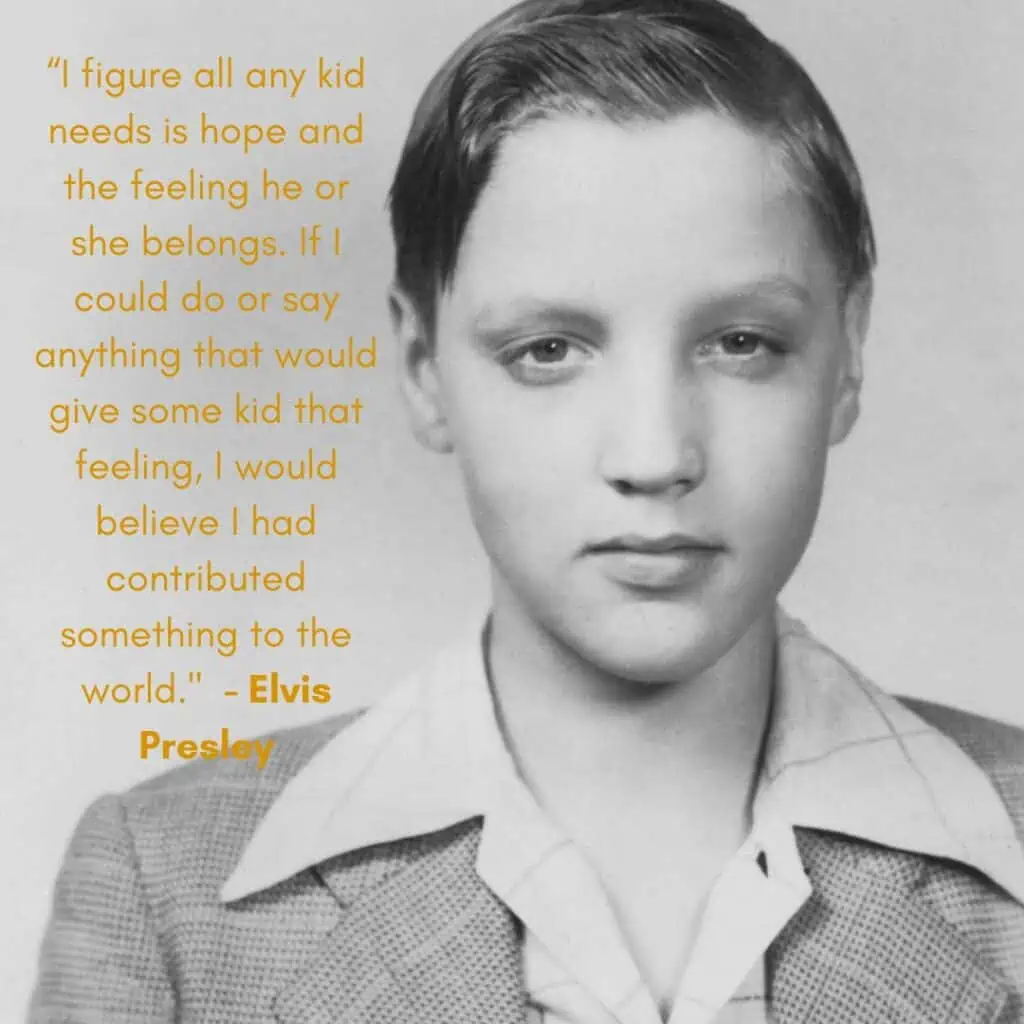
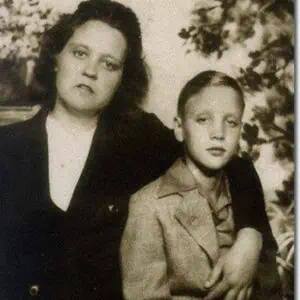
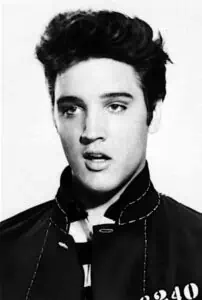

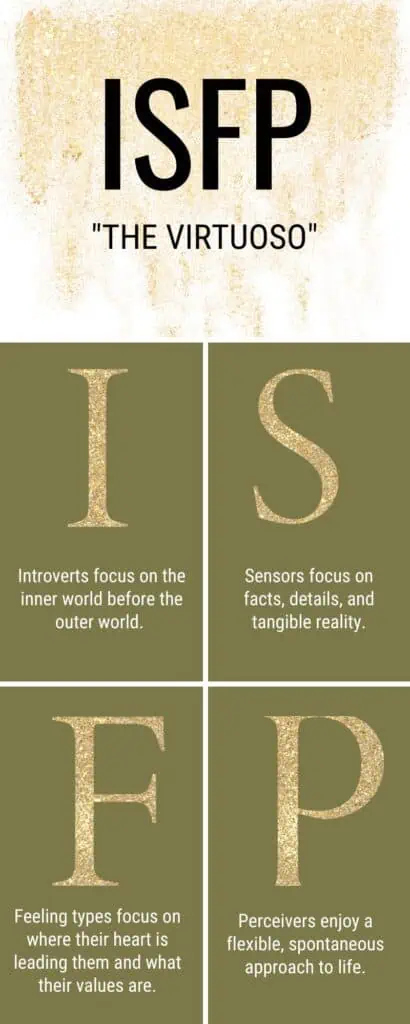






Brilliant analysis, spot on, and an enjoyable read. Good job!
Fellow ISFP
Thank you so much Martin!
That was a good read, and impressively detailed (and also, I agree about Elvis as an ISFP). I’d like to see more of this kind of in-depth typing, though I imagine it’s pretty time-consuming.
I love writing articles like this and am hoping I can do more in this style. These posts never get the viewership of the listicle-type articles, but they’re a lot more fun to research and write 🙂
He was ENTJ.